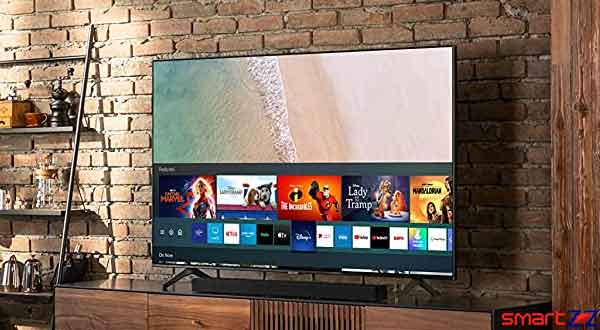LCD vs LED TVs – Which One is Better? Detailed Comparison
A comparison between LCD and LED TVs. What is the difference and which is the best?

The evolution of televisions has come a long way and we are made to consider a lot of things before buying a TV. Many screen technologies like OLED, QLED, UHD are available in the market today. But all these are the successors of LED and LCD TVs. In this post, we are going to get into the details and compare LED and LCD displays. Stick till the end and find the difference between LED and LCD and you will get some ideas for your next TV.
We have taken a few of the important aspects of a TV for some detailed comparison below. But before we see that let’s know how the LED and LCD technology work.
The Technology behind LED and LCD
First, we need to understand that an LED (Light Emitting Diode) monitor is a specific type of LCD (Liquid Crystal Display). This means that both TVs use the LCD technology. Therefore every LED screen is an LCD in nature, but not all LCDs are LED monitors.
So what is the difference? LCD TVs, when introduced, used CCFL (Cold Cathode Fluorescent Lamp) which is a fluorescent bulb that helps in displaying pictures. Whereas in LED TVs there are an array of more efficient and smaller diodes that emit lights for better pictures.
Now you must have understood that the difference is the way backlighting happens in both the TVs. Both LED and LCD TVs have three different types each and they are mentioned below.
Types of LED
- Edge-LED- Backlights are kept around the rim and a special diffusion panel spreads them evenly.
- Dynamic RGB LED- This type allows specific areas to dim when needed.
- Full array LED- Group of LED are set behind the screen and these cannot dim or brighten alone
Types of LCD
- Flat-screen LCD- The most popular type, which is slim and expensive. Mounted on wall or kept standing
- Front Projection LCD- These are basically projectors that project images on a flat-screen hung anywhere.
- Rear Projection LCD- Pictures are projected from the rear of the TV to the screen in front.
LED and LCD compared.
Viewing angle
LED TVs that have the backlights positioned in the edges are not too better than LCDs. But the direct-view LED TVs have light sources that are evenly spread and this gives better viewing angles. If you are going to buy an LED TV check the backlighting technology used.
Contrast
An LCD TV is never better than the LED TVs because of the difference in backlighting technology. The full-array LED backlighting brings in great difference with respect to contrast. LED TVs can emit the entire RGB spectrum and this is not possible on LCDs as they show only white and black. Clearly, LED TVs are the winners here.
Response time
Response time is the time taken by a TV to switch from one color to another. The shift in colors happens in milliseconds so it is very hard to compare. But we can say that a screen is doing better at response time by the quality of images it produces. LED screens naturally produce better image quality and hence they must have a shorter response time than LEDs.
Picture quality
LED screens are the clear winners in this section as they do exceptionally great when compared to LCD screens. The modular light-emitting diodes let LED screens have more control over contrast and this in turn gives out clear pictures. Additionally, there is the RGB contrast found in LEDs that gives true blacks and whites on the screen.
Frame size and weight
An LED TV is much thinner than the LCD TVs and even this has to do with the backlighting technology. In LEDs, numerous diodes that are arranged next to each other do not thicken the screen no matter what. Whereas in LCDs the TV is made thicker to make room for the fluorescent lamps. We can see that most of the LED screens are just one-third in thickness when compared to LCD screens.
Practically the thickness of a TV decides the weight of it so without any doubt LED TVs are lighter than LCD. On average, an LED TV weighs only about half of an LCD TV of the same size.
Cost
Better and new technology come at higher prices, so undoubtedly LED TVs are costlier than LCD TVs. But remember that the price you pay for an LED TV is worth it because of its ability to deliver good performance.
LED vs LCD, A quick review
By now you should have known that LED TVs are always better than LCD TV on any given day. Let’s quickly reassure this by knowing the pros and cons of LEDs and LCDs.
Pros in LED
- Superior picture quality
- Cheaper maintenance
- Long-lasting
- Slimmer and lighter
- Better viewing angle
- Value for money
Cons in LED
- A little pricey
Pros in LCD
- Cheaper and budget-friendly.
Cons in LCD
- Old Technology
- Inferior picture quality
- Costlier maintenance
- Shorter Lifespan
- Bulkier
Conclusion
By all means, an LED TV is better than an LCD TV anytime. It’s just that you have to pay more for a TV that uses LED technology. But decide whether you want to prefer a new generation TV with all better qualities or an older technology that can disappoint you in performance. LED TVs are more attractive, give excellent cinema experience and fits in all places for a good TV experience. The world is switching from the LCDs to the LEDs and maybe you must too.
Share on:
![10 Best laptops under ₹30,000 to Buy in India ' [myear]](https://cdn.smartzoz.in/wp-content/uploads/2019/07/laptops-30000rs-india.jpg)



